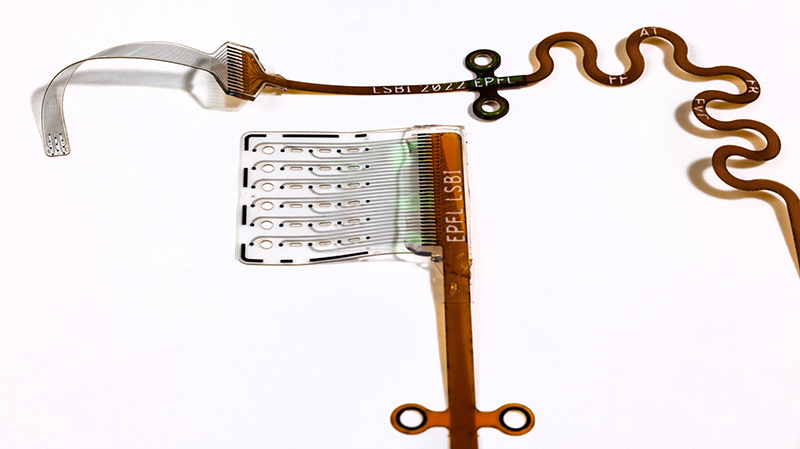Better quality hearing via soft brainstem implant
A soft auditory implant is designed to gently conform to brain tissue, enhancing signal precision and comfort.

The soft auditory brainstem implant (ABI) developed at EPFL is designed to gently conform to brain tissue, enhancing signal precision and patient comfort
© 2025 EPFL/Alain Herzog - CC-BY-SA 4.0EPFL researchers in Switzerland have successfully demonstrated the high-resolution ‘prosthetic hearing’ in macaques.
The most successful neurotech device to date is the cochlear implant, however, this does not work for all patients such as those whose cochlear nerve is too damaged.
Auditory brainstem implants (ABI) present a promising alternative, unfortunately, current ABIs are rigid implants often resulting in poor tissue contact leading to unsatisfactory results and side effects.
EPFL’s Laboratory for Soft Bioelectronic Interfaces has developed a soft, thin-film ABI.
The device uses micrometre-scale platinum electrodes embedded in silicone, forming a thin pliable array.
This novel approach, published in Nature Biomedical Engineering, enables better tissue contact, potentially preventing off-target nerve activation and reducing side-effects.
While the results so far are promising, the implant is a long way from commercialisation.





